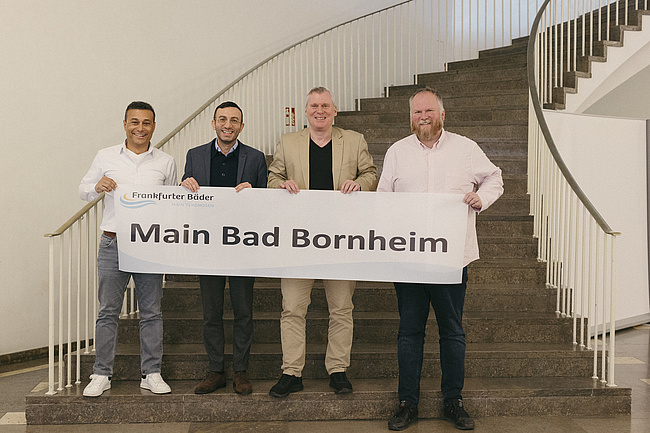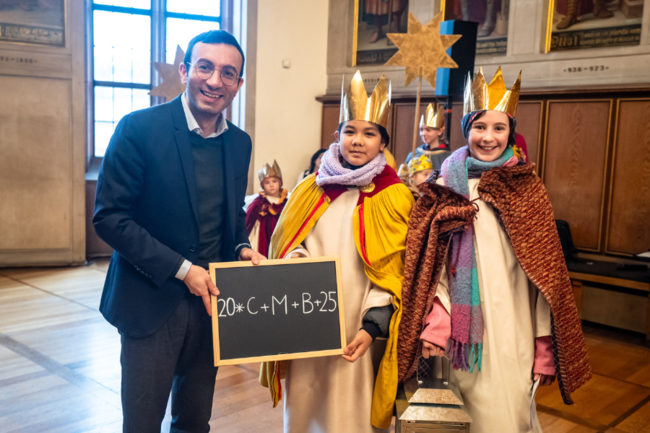The Frankfurt Zoo will have a new director as of 15. February a new director: the magistrate of the city has agreed to the proposal of Ina Hartwig, Department of Culture and Science, that Christina Geiger should take over the management of the popular educational and cultural institution. This was decided by the magistrate at its meeting on Friday, January 21. Previously, Geiger worked as a veterinarian at Frankfurt Zoo and took on curatorial duties as a member of the Scientific Department.
"I am very pleased that the Magistrate has followed my request to appoint Dr. Christina Geiger as the new director of Frankfurt Zoo," says Hartwig, head of the Department of Culture and Science, adding, "She is very familiar with the facility and not only knows every animal by name, but also knows the challenge we will face in the coming years to further develop the zoo as a modern educational and cultural institution. Being a veterinarian at the zoo is a cross-sectional job; one works with almost all employees and coordinates projects across the board. In addition, she has already played a key role in the development of the Zookunft2030+ concept study, and together we will continue to move forward with these plans. Dr. Christina Geiger thinks in terms of cooperation, has herself done conservation work in numerous projects of the Frankfurt Zoological Society and the Society for International Cooperation abroad. This experience and inside view, as well as her international network, will be of great help to us in the upcoming tasks in Frankfurt, but also in the association of zoological gardens in Germany and beyond. I look forward to working with her."
For Geiger, her appointment has a very crucial aspect: "My new task, which I am looking forward to extraordinarily, will allow me to continue working on zoo development very quickly: As a well-coordinated team, we can continue seamlessly and move forward with the plans for the zoo. Miguel Casares has presented the essential first step in this direction in the form of the concept study Zookunft2030+, which he developed together with us. With the swift implementation of these plans into a master plan, the development can now take shape. I look forward to continuing the collaboration with our motivated and committed employees in a different capacity. Coming from the grassroots, I am very familiar with the different demands on zoo facilities and thus bring a different perspective into play than the predominantly theoretical-planning one I have had up to now. My many years of professional experience in zoos and my strong ties to Frankfurt Zoo in particular will benefit me."
Christina Geiger studied veterinary medicine and completed her doctorate at the University of Munich. After that, the 42-year-old worked as a veterinarian at the Hellabrunn Zoo in Munich and the Karlsruhe Zoological Garden, among other places. Since 2007, she has been a veterinarian at Frankfurt Zoo, where she is responsible for the safety and health of all animals living there.
With her expertise, a state-of-the-art quarantine station was added to the veterinary department. Geiger has also played a key role in the zoo's strategic development in recent years and in the most recently commissioned concept study Zookunft2030+. In international projects of the Frankfurt Zoological Society and the Society for International Cooperation, she contributed her expert knowledge in recent years and worked on site with a wide range of stakeholders at the international level.
Among the most significant projects in the field are the reintroduction of zoo rhinos, the reintroduction of Przewalski's horses and the relocation of kulans in central Kazakhstan, as well as the establishment of a trapping method for saiga antelopes for transmitter. These measures allow the animals' migration routes to be tracked and adjustments to the extent of protected areas to be made. In addition to numerous publications and papers, Geiger is involved in the education of students at the universities of Frankfurt and Giessen. She has excellent national and international networks and volunteers in many zoo-related associations.













